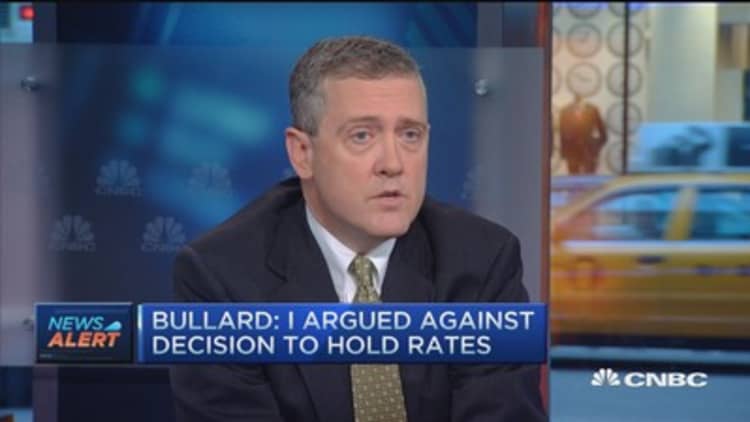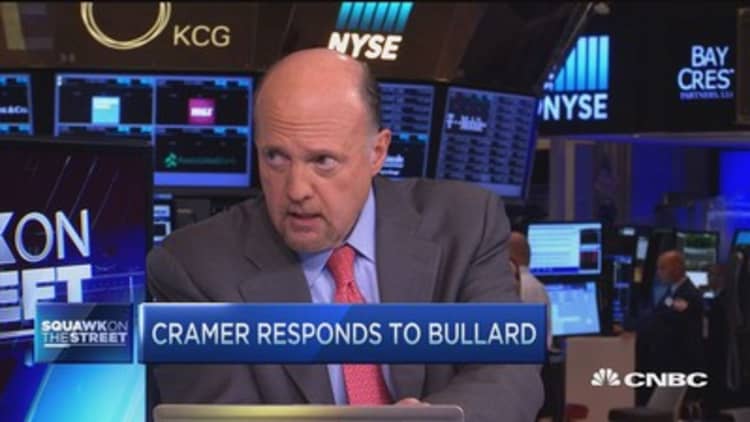
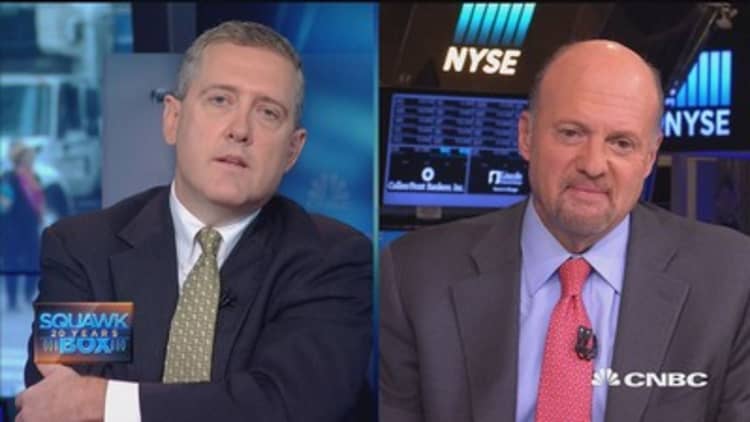
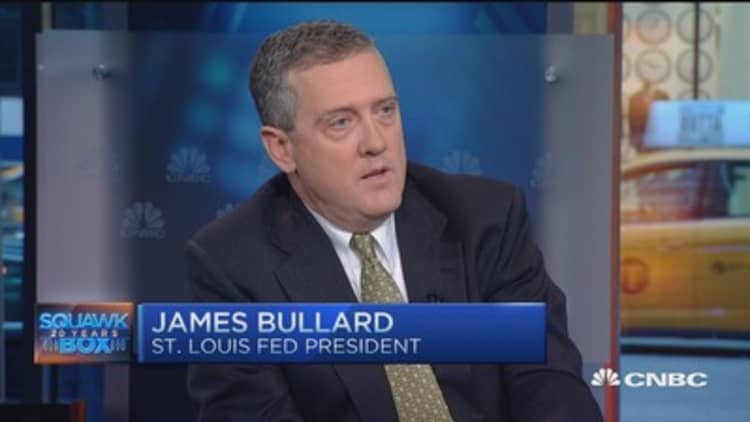
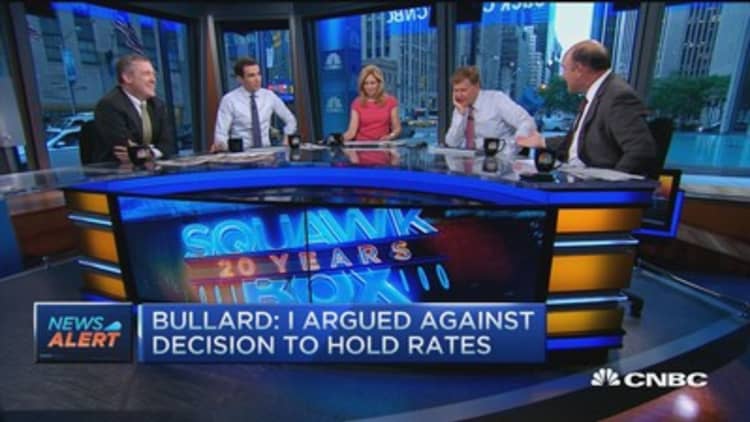
St. Louis Fed President James Bullard called out CNBC's Jim Cramer on Monday over the central bank's influence over the stock market, and Cramer responded by offering an "olive branch" but said he took issue with name-calling.
It started with Bullard, in an interview on CNBC's "Squawk Box," saying: "I've got a message for your friend Jim Cramer. The Fed cannot permanently raise stock prices. The idea that the Fed is going one way or the other, and this is what's driving the stock market, is not true. He's one of the great people at looking at businesses, how good is this business, what's the profitability of the business, what's this thing worth? And to have him cheerleading for lower rates 24-hours a day is, I think, unsavory."
Bullard said it's time to increase interest rates, and policymakers should not react to turmoil in financial markets.
The Federal Reserve's decision to leave rates unchanged last week was a "close call," he added.
Read MoreAltman: Government shutdown probable—here's why
Cramer responded later on CNBC, saying he's offering an olive branch rather than getting mad. "Other than the 'unsavory' comment, typically I like to have combat that does not involve any sort of ad hominem attack."
"I'm taking [the] Janet Yellen position, which is also 'unsavory,' I guess," Cramer said. "Am I 'cheerleading for higher prices'? I've been pretty negative on the market. I cheerlead that Main Street needs to be on firm footing."
He insisted the time will come for a rate hike, just not now "when China is not teetering, when Europe is on firmer ground."
"I find our economy took a step down. Employment is to our economy as the Chinese stock market is to China. They're not as relevant as they used to be because the jobs we're creating are not the kind of jobs ... the president would favor or I think all of us would favor," he said. "I'm [also] worried about deflation."
"I come back to 1987. I come back to 1997, 1998, 1994," Cramer said. "There were times international [events] really did help bring down the U.S. I think we have to be cognizant of that."
Cramer said he's not too worried about how a rate hike would hit the stock market.
"Main Street will get hurt," Cramer said. "We'll be on the same page one day Mr. Bullard. I just don't think we're on the same page yet."
Bullard outlined his case to Cramer. "We're at zero [percent] policy rates and we're at [a] $4.5 trillion balance sheet when the unemployment rate was right on top of the committee's estimate of the natural rate." He also said inflation is showing signs of picking up.
"We have vanquished all our foes. It's time to get off the emergency settings," Bullard added.
Cramer said he thinks it's really important to hear both sides of the argument. "Unemployment is a thing of the past, but I'm looking at other situations worldwide that I think are a problem. I think housing has a right to go up a little bit. I think that autos may be peaking. I'm concerned about manufacturing in this country. But I recognize that if you're just going to make it employment, then you're going to be right."
"Let's see who's going to be right," he said.
Earlier on CNBC, Bullard said concern in the markets about a slowdown in China are probably overblown. "The impact of China coming directly back to the United States is relatively small," he said. "China is slowing. [But a] hard landing [is] a long shot at this point."
Read More Fed's Bullard: October rate hike possible, but ...
"I would have dissented on this decision," said Bullard, who is not a voting member of the Fed's policy setting committee. The lone dissenting vote on Thursday's decision was Richmond Fed chief Jeffrey Lacker.
Bullard said he wanted to act so the Fed won't get behind the curve and have to raise rates all of a sudden.
